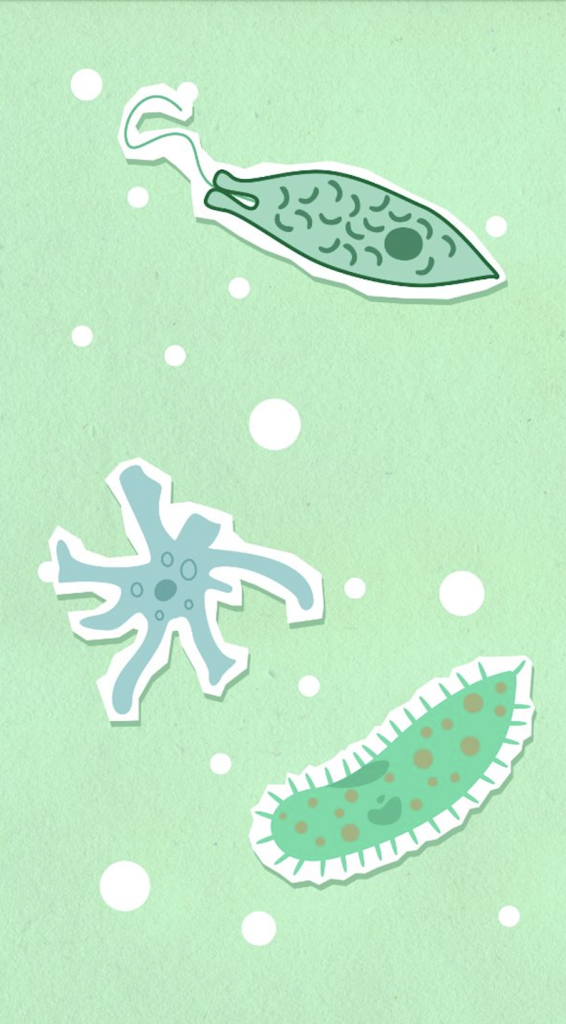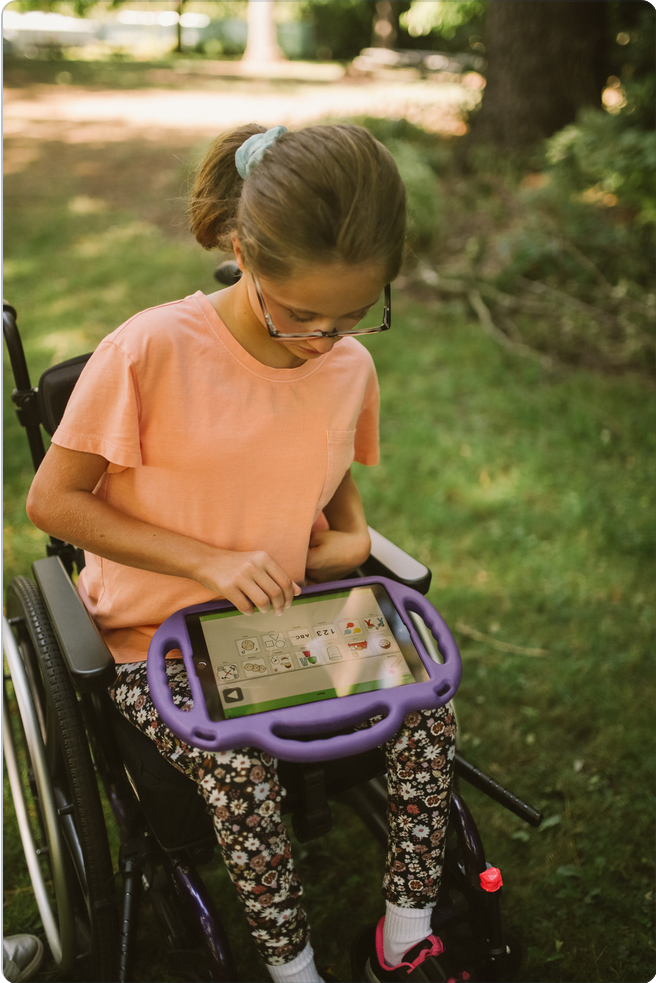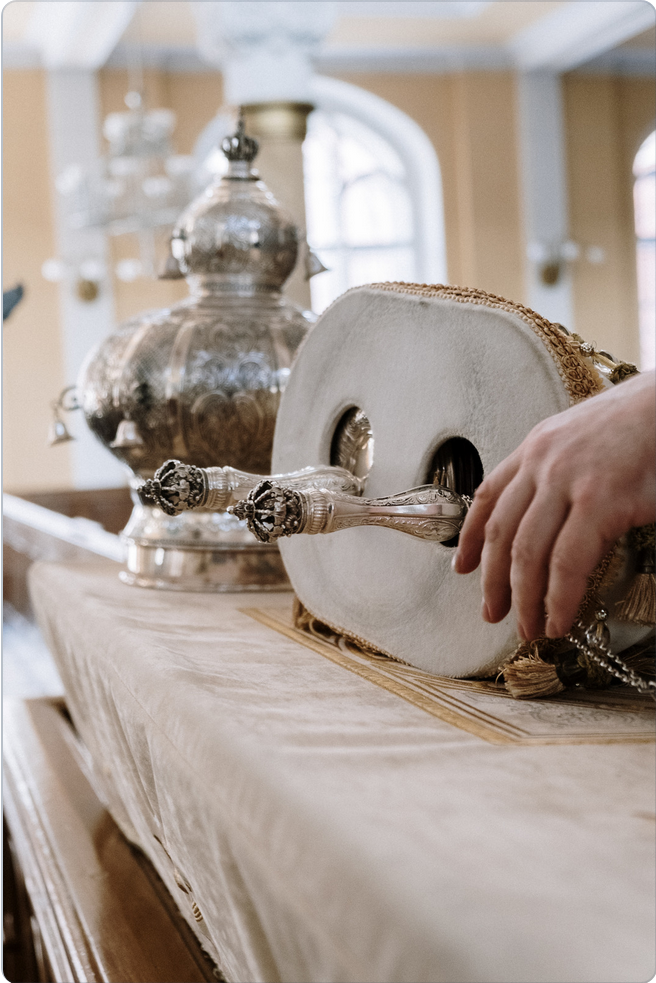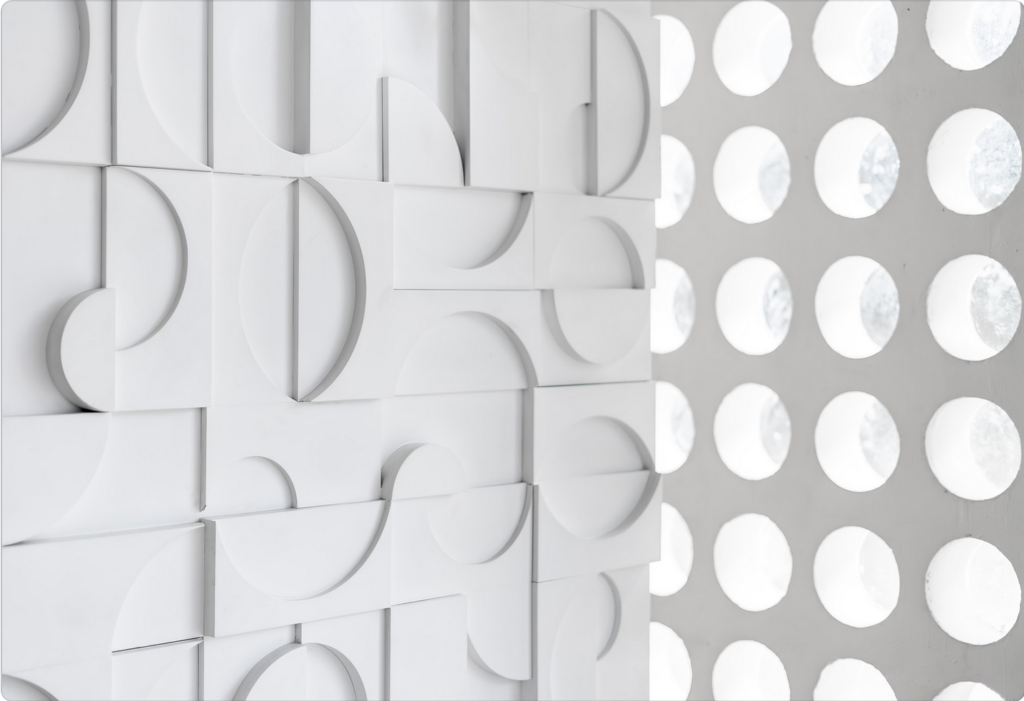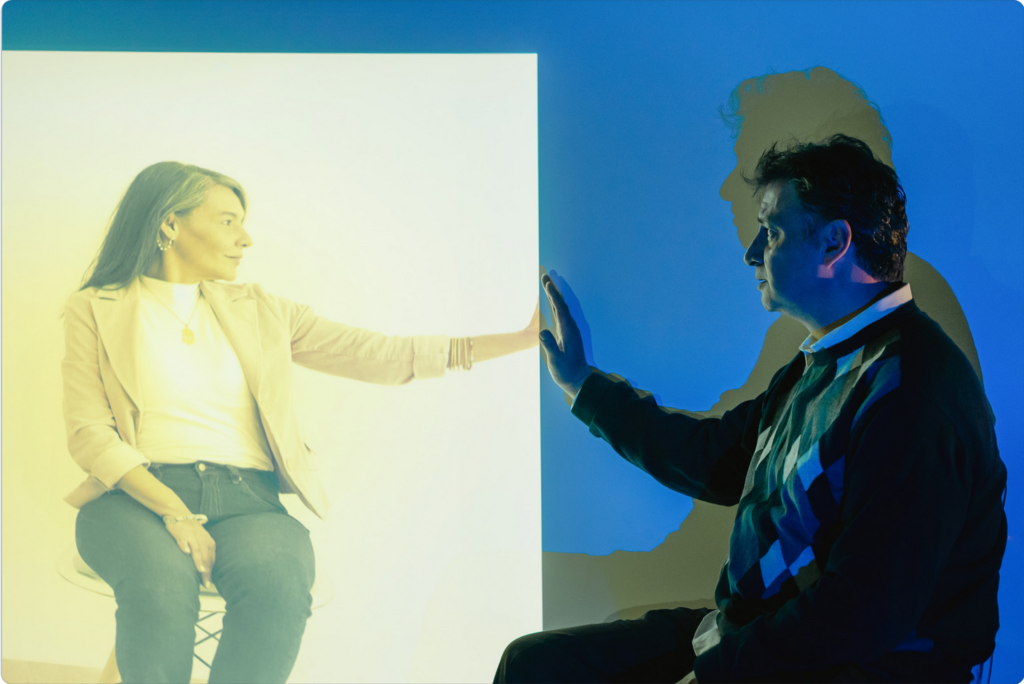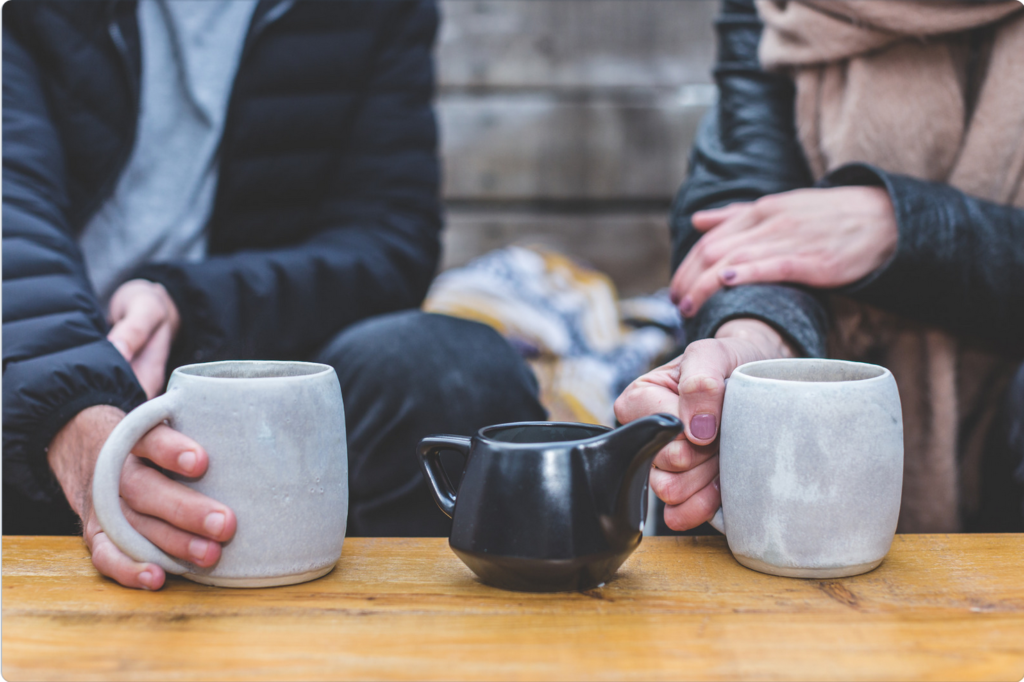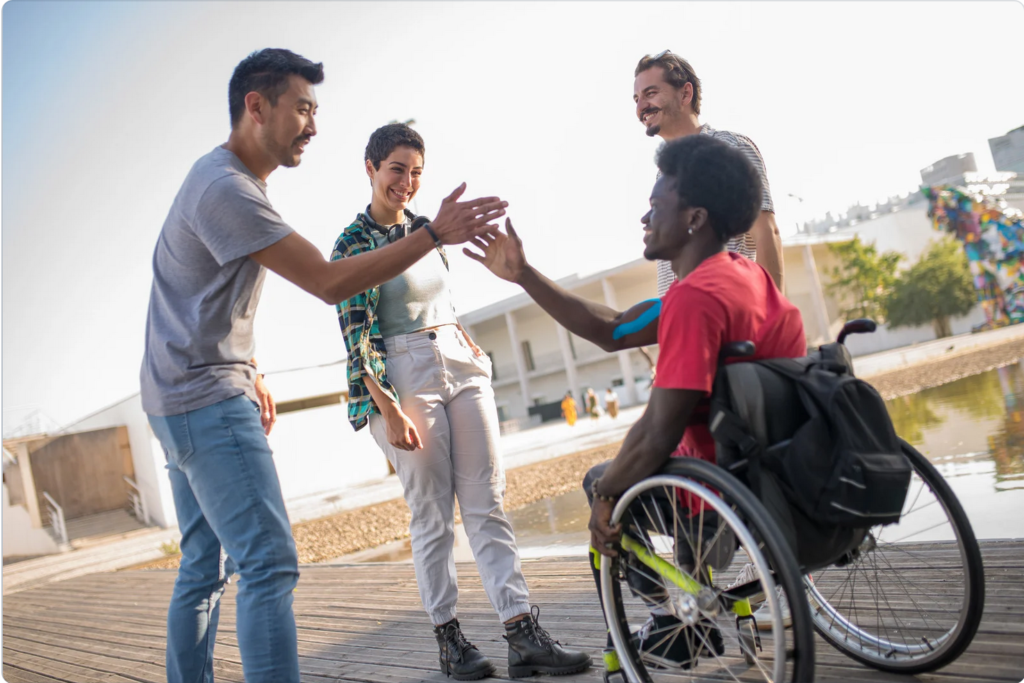-
Pausing of the Waters
The building I live in has a water problem. I moved in two years ago, and at the time saw how efficiently the staff and maintenance people attended to a leak in the ceiling in the lobby. Their work ethic and commitment to keeping the building operating impressed me, and also the attentive manner with which the manager engaged with residents coming into her office also felt reassuring.
Meanwhile, I signed the lease and moved in. Leaks continued to plague the building, springing from ceilings, running down walls, and causing them to have to open up the wall behind the sink and toilet of my newly renovated bathroom – twice. This was alarming to me, my nicely plastered walls were now a bit lumpy-bumpy the charm of the upgraded apartment was dissolving into concern about what might come next with regard to repairs.
Our water was shut off time and again, now to stop a burst pipe in the apartments upstairs, and again to stop a catastrophic flood in the sub-basement parking garage, and again to replace the boilers. The building is over 60 years old, and has the ambience and look of a nicely appointed Old World style hotel, with statues and figurines and chandeliers and fountains leaping in the lobby. But, eventually, even with the greatest attentiveness and care, things wear out.
Long time residents tell me that the leaks and water problems have been going on for years, my estimate from averaging the varying time frames they report, about maybe 4 years now. The building has so many nice features, because it is old. The walls between apartments are thick and so it is quiet with little disturbance from neighbours; it is very low tech with no electrified walls or wiring beyond fire safety alarm codes; everyone has a spacious balcony; and as mentioned, the staff have an old fashioned commitment to attending to residents’ needs.
Yesterday, I came home from some errands to find that the water was shut off without notice for an emergency: the city is replacing the drainage system, which apparently has been the cause of all the water backups and pressure leaks inside the building. But, the city broke something and our water was shut off – again, and for an indeterminate amount of time.
Oy! it’s right before Shabbat, and right before Passover, and most of the residents of this building, like me, are Jewish and rushing around trying to get their apartments ready for festive meals and guests.
I was heading out for a Tai Chi class (at the Renge Dojo in Toronto), and got into the elevator. It was crowded with people going out for Shabbat and stopped on a couple of floors on the way down. I made a joke about how boring our building would be if we didn’t have these water shutoffs from time to time. Everyone chuckled and one gentleman laughed, and smiling at me, said he liked making a joke about it instead of a complaint
The truth is, though, they may never end. The other truth is, that we were all in the same boat (or elevator) and instead of staring at the doors or the floor counter on the wall, we were chatting and bonding with our complaint, and also having a laugh together.
Although our ride down to the lobby was brief, it changed something for us all. No longer stuck together in an elevator or in a leaky building, we got to know our neighbours a bit better, and got to step into a new way of looking at our situation, replacing angst and irritation with irony and humour.
Perhaps at this season of turnover, when it is traditional for Jews to read the passages in Torah about the exodus from Egypt, or Mitzrayim – the narrow place, we can find a new way of seeing challenges or barriers to our wellbeing. Part of leaving Egypt meant the Hebrews had to face the barrier of the Sea of Reeds (or Red Sea). Did they stand at the shore and complain? Some of them did! But then, one person, whose name in midrash is Nahshon, saw a way forward, and he put his foot into the water, and the waters withdrew.
Think about some narrow place you may be in, and how you react to that. And then, think about this man who stepped into the Reed Sea first and made a path for others, or even how my joke in the elevator brought change for some residents. Opening up to as many options as are available can liberate us from seemingly endless or hopeless bondage.
Have you tried this lately? write to me and tell me your story, too!
Wishing You a Peaceful Transition in this Season of Freedom Celebration.
-
Are You Lonely?
The U.S. Surgeon General states that loneliness is now in epidemic proportions. News about high levels of loneliness is found in sources globally, including Harvard Magazine and Al Arabiya. Is loneliness a new thing, since the rise of COVID-19, and is if affecting you?
Loneliness is not a new phenomenon, it arose with the first life forms, since time immemorial. I suspect, in fact, that the even the earliest life forms had sensations of loneliness.
For example broadly, the lone survivors after their primordial soup desiccated under the unfiltered sunlight, or catastrophic flood or volcanic eruption. Or, perhaps the simple lack of contact stimulus set them moving about to find mates in order to procreate or assist with feeding.
Of course, we can only speculate on this, although in an informed way. I was delighted to find a book that allowed me to integrate my personae as both Biologist and Chaplain, Origin of Group Identity by Luis P. Villarreal. This book discusses the importance of group identity for all organisms, even ones that seem inanimate, such as viruses.
Moving forward a few billion years, though, not much has changed for living organisms. We all become alone, from the single-celled organism to the very complex human being. Transforming and then defining this state of singularity into the cognate of ‘loneliness’ shifts what is natural and common into a status requiring action.
As humans, endowed with the ability to manipulate our environment, we can do things, such as gather and live together in communities, share resources, such as hospitals, places of worship, governance, and recreation. This adapting the environment to suit us rather than vice versa, where the environment makes the rules and the organism must adapt, is something that sets us apart from how other life forms address solitude.
Of late, we also have social media. That can be a good thing. For people who are housebound due to illness- or age-related frailties, social media can be a life-line for drawing in necessities, such as companionship, grocery delivery, or a doctor visit.
But, over the past few short decades, relatively healthy cohorts have drifted away from shores of direct personal contact towards the uncharted lands of the solitary individual touching others via their electronic keyboards: much of value has been left behind. The tips of the icebergs on these man-made seas has been of concern for quite some time now: cyber bullying and the emotional impact of social media on adolescents, the ability to post anything and everything with strokes on one’s inert, faceless keyboard. And now, we have AI fabricating ‘facts’ about ourselves and others.
For now, I want to focus on loneliness because that is what the world’s esteemed authorities on human health and welfare are telling us we are suffering from, in pandemic proportions.
I’ve already given hints as to the scientific/biological origins of ‘loneliness’. Now, let’s look at what our wise and compassionate human ancestors gave us through their legacy of wisdom, of Torah, regarding what loneliness is and how to take care of it. This week’s Torah portion, Eikev, in part addresses speaks of loneliness, through the speech of Moses in Deut. 10: 16-19:
“(16) Cut away, therefore, the thickening about your hearts and stiffen your necks no more.
(17) For your God is God supreme and Lord supreme, the great, the mighty, and the awesome God, who shows no favor and takes no bribe,
(18) but upholds the cause of the fatherless and the widow, and befriends the stranger, providing food and clothing.—
(19) You too must befriend the stranger, for you were strangers in the land of Egypt.”
The definition of the Hebrew word for Egypt, mitzrayim means a place of narrows: the narrow place wherein the Israelites were squeezed, through their enslavement. These words of Moses are so relevant today that they could have been written recently: about living through the COVID pandemic, with their reference to us all having been strangers in the land of Egypt/Narrowness at one time or another.
Indeed, anyone over the age of a few weeks old has lived through some or all of the pandemic, that strange and uncertain time of travelling through some harrowing and narrow bridge or birthing canal into a new land. Think about what you did during that time. We had to isolate, stay home, stay apart from others. We had to make sacrifices and take care of ourselves as individuals, even if we lived with others, because there was no place to go, no distractions such as going to the office or shopping, or to a movie or a vacation. We had to be individuals navigating enforced tight quarters and relationships, or as isolated individuals.
Creating and maintaining personal boundaries is an important skill: however, the lengthy periods of COVID isolation enforcing them, combined with replacing direct personal contact with social media, may have created thick walls of impermeability where once we absorbed the presence of others, and could feel empathy and normal social awareness. This is a thickening about the heart, just as described in verse 16 above.
The stiffening of the neck is what we do when we know what is right but refuse to do it. The child who won’t eat their vegetables or pick up their toys, the adult who acts on impulse to their detriment; or those of us ignoring calls for empathy, contact, or love from others because it’s just easier to send a text or emoji.
Ask yourself, “have I built a great callous around my heart?” are you able to have real and safe interactions with others, away from social media?
Pick up the telephone and call a friend you haven’t spoken to in a while, or who has been away from usual activities due to illness or travel. Send a card, buy a gift, have a coffee.
Loneliness can cause us to assume others have left, moved on, or worse, are never coming back. Let them know you are here, too – that you are no longer strangers in a strange land.
-
Narrow Bridges and Narrow Places
The 50 days between Passover and Shavuoth mark are a time set aside to mark the Biblical journey of the Hebrew people from Enslavement in Egypt to Revelation at Mt. Sinai. Egypt is called Mitzrayim in Hebrew, meaning ‘narrow place’. This year, the retelling of the journey of my ancestors from out of the Narrow Place of bondage to receiving the Torah (Law), brought to mind a saying of Rabbi Nachman of Bratslav, ‘“The whole world is a very narrow bridge; the important thing is not to be afraid.”

This year has been a turbulent one worldwide. There are refugees streaming away from crises in their homeland, there are reversals of progressive gender equality legislation, there are demands by college students to be provided with a safe environment, terrorism is on the rise, and at least one American Presidential candidate is running on a platform of backlash against any progressive racial, cultural or gender policies. What is driving this? Fear.
Fear from all quarters is headlining the news these days. People are afraid. Some are afraid of losing their familiar way of life, some of losing their long battle for hard-won rights; some are expecting their path to be free of obstacles, others are creating obstacles to draw attention.
It seems they are all walking across narrow bridges, or wandering lost in the desert, while schlepping (carrying) along their old fears.
 In the case of the Exodus story, as soon as there was any hardship in the desert, the people demanded to go back to the Narrow Place of Egypt where things were familiar, where they even fantasized they had dined on fish and leeks.
In the case of the Exodus story, as soon as there was any hardship in the desert, the people demanded to go back to the Narrow Place of Egypt where things were familiar, where they even fantasized they had dined on fish and leeks.The wandering in the desert was scary; the best thing to do was blame someone, Moses their leader, for their scary predicament. It was much like crossing a narrow bridge: you are in an unrecognizable place, neither here nor there and can only go forward.
Fear of changes such as these arise in part due to a lack of structure or guidebook. The Hebrews escaped the Narrow Place knowing only that 400 years of slavery was enough, and they could not stand being slaves any longer.
They did not know where they were going; and that was scary. The narrow bridge they were crossing was certainly taking them away from a very bad place. If they could endure the chaos that resulted from a new and unfamiliar freedom things would certainly be better. They did not have a structure for this mass exodus; instead they just had to stay the course and keep walking, fear and all.
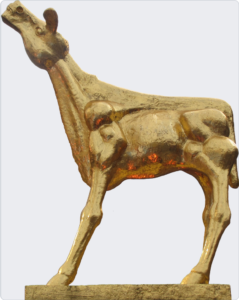
After many mishaps and building their own source of guidance with the Golden Calf, they received the Torah at Mt. Sinai. I like this Biblical example of how treacherous it is to cross from places of chaos into those of order. I believe the model can be applied to ease our modern maelstrom of push-and-shove to create novel cultural, racial and gender paradigms rather than see what has already been bequeathed to us by our ancestors.
I will share a recent personal experience. I was walking home from synagogue one Shabbat. As I passed the outdoor patio of a coffee house, I overheard a very loud conversation that was overtly using expletives against both Israel and Jews. I thought about what to do about this rather brash conversation and decided to turn the situation into an opportunity to ask what the basis was for the loud and offending remarks. First, I approached the loud group of young people seated at a table and simply identified myself as one of the Jews they were deriding. As I walked away, the young people beckoned me to stay and speak with them.
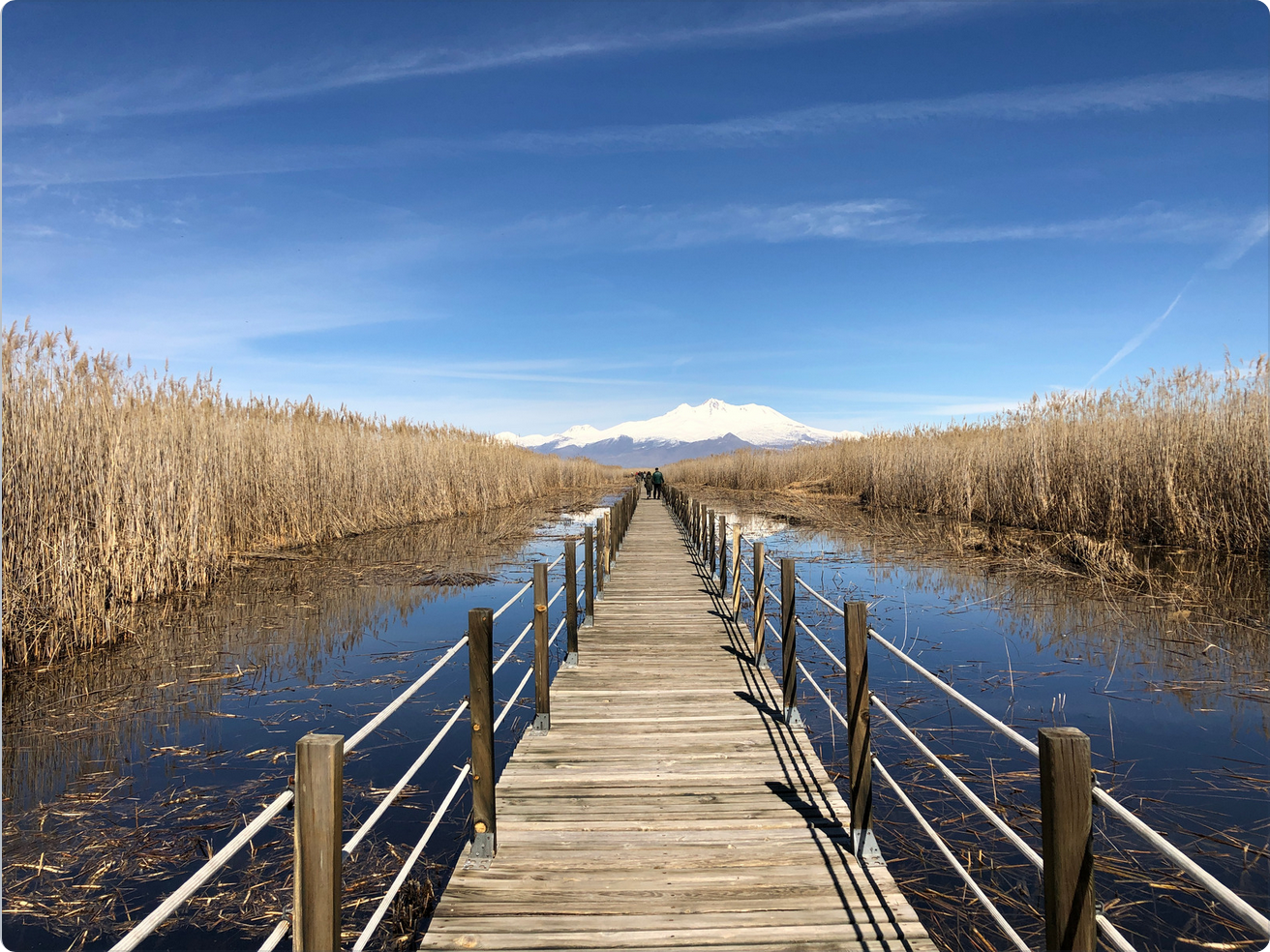 Through these actions, we all set aside fear and embarked upon a walk over that narrow bridge together.
Through these actions, we all set aside fear and embarked upon a walk over that narrow bridge together.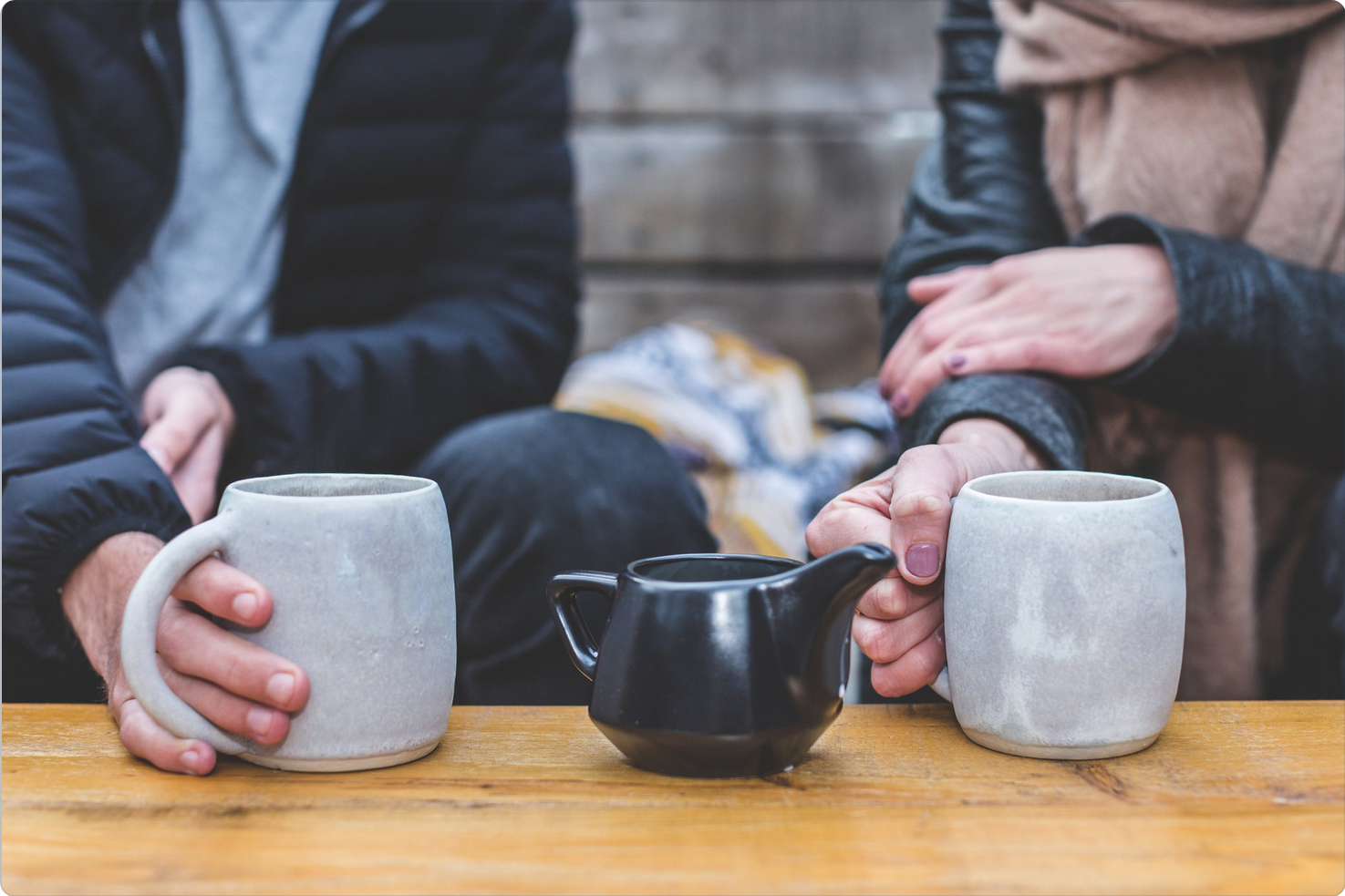 We talked. When asked, they could not provide any facts about Jews and Israel; they only knew their negative views from friends’ opinions and the abundance of left-wing popup news media on the street. They wanted me to give an overview of Judaism and I gave them some dates for important events in the formation of the modern country of Israel. I invited them to Google these and see what else they could learn.
We talked. When asked, they could not provide any facts about Jews and Israel; they only knew their negative views from friends’ opinions and the abundance of left-wing popup news media on the street. They wanted me to give an overview of Judaism and I gave them some dates for important events in the formation of the modern country of Israel. I invited them to Google these and see what else they could learn.Contrary to what fear might have said about this conversation, they thanked me profusely.
By taking those steps toward them a journey began, away from the enslaving ideas we had on both sides, toward a way of understanding how this chaos of anti-Semitism and anti-Zionism came to be.
I also learned that diplomacy happens in direct 1:1 conversations: not through online polemics, international political gestures, grandiose political swaggering, or biased news media.
I have told this story about the coffee house conversation to others. Usually the first response is, with all that pressure to conform to the status quo of the neighbourhood, wasn’t I afraid to approach these young people? My reply has been that my only fear was that because I was peacefully walking home from synagogue when I overheard them, I might be violating Shabbat (the Sabbath) by potentially creating a conflict. However, the wisdom of faith told me that the honest way to create and perpetuate Shabbat peace was to take that walk on that narrow bridge and engage these people, without fear.

We observe the passage of 50 days from Passover to Shavuoth as an opportunity to take steps away from things that we are unsafely bonded to and find an order in our lives that matters.
There are still a few days left before Shavuouth begins, on the evening of June 11th. Find time over these days to leave behind something that holds you back—a habit, an addiction, a prejudice, a hurt—and move ahead with faith rather than fear, that something good lies ahead.


